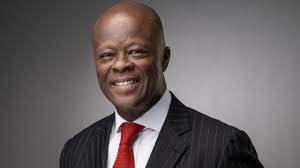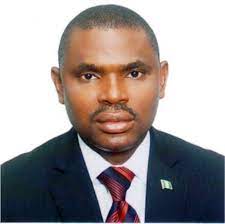By – Mohammed Momoh
Abuja, March 12, 2024 – The Independent Media and Policy Initiative (IMPI) has commended the federal government for allocating more funds to capital expenditure than recurrent in the budget for the first time in the current democratic dispensation.
The group, which made the commendation through a statement signed by its Chairman Niyi Akinsiju, said the decision to buck a 24- year trend with the 2024 budget is a reflection of the government’s sincerity to drive real economic growth.
According to the policy think tank, there is a lot of positives to derive from a N28.7trillion spending plan that seeks to correct years of budget imbalance between capital and recurrent expenditures.
“From an analytical point of view, a budget with higher capital expenditure than recurrent is not only a driver of economic growth, it also impacts individual citizen’s quality and way of life.
“In this regard, we concur with the 2019 submission of the Nigerian Institute of Social and Economic Research (NISER) that the only way to bring about a meaningful influence on the economy is to monitor and evaluate funds that are specially intended for capital expenditure and capital projects.
“It would, however, appear that the disequilibrium between capital and recurrent expenditures has been eventually corrected. For the first time in the current democratic dispensation, the 2024 budget, which is the first in the tenure of the President Bola Tinubu administration, has more funds allocated to capital expenditure than recurrent.
“The budget of N28.777 trillion for the 2024 fiscal year has a recurrent expenditure of N8.7 trillion with N9.9 trillion allocated to capital expenditure.
“Granted that what was passed by the National Assembly was N1.28trillion more than the original N27.5 trillion spending plan, there are indeed good signs and prospects for a budget that is to be financed through a non-debt revenue of N19.6 trillion and a deficit of about N9.18 trillion.
“This is something to build on for an administration that has, since assuming office, embraced economic reforms that are not only courageous in the face of historical resistance to their implementation but are also expected to yield long term transformative benefits to Nigerians”
The policy think tank also lamented how previous administrations had failed to capitalize on two oil booms to boost infrastructural development in the country through higher capital votes.
“Between 2006 and 2013, the national economy grew at an average of between 6 and 8 percent according to World Bank figures yet the increased revenue was channeled into feeding public servants. The recurrent expenditures in those years were always bigger than allocation for capital expenditure.
“Nigeria’s recurrent expenditures which include spending on personnel expenses such as wages and pensions as well as overhead costs and service wide votes have regularly consumed over 65% of total budgets and a huge chunk of revenue.
“We consider it even more depressing that despite the incongruent budgetary imbalance, the country has, since 2009, been recording yearly budget deficits that average N3.3trn in recent years aggravated by oil price volatility and post-COVID economic debilitations in recent years.
“Budget Office data show that between 2011 and 2021, the Federal Government of Nigeria spent N29.3 trillion on (non-debt) recurrent expenditure while it earned N33.2 trillion revenue during this period. This means that what went into capital projects was extremely negligible,” It added.
IMPI is however hopeful that cost cutting measures approved by President Tinubu will ensure that more funds are freed for capital component of the budget
“In addition to this is the decision to implement the 12 year-old Stephen Oronsaye’s report on public sector reforms which is expected to reduce cost of governance by at least N2 trillion even as the federal government is set to increase minimum wage. The challenge ahead lies in ensuring a better budget implementation in a country with a record of poor budget performance.
“We, however, feel sanguine over the prospect of attaining a 100 percent implementation of the capital expenditure aspect of the 2024 federal government budget premised on freed revenue from the civil service reforms to be channeled into funding capital projects for the good of the larger percentage of Nigerians.” (GBN)





